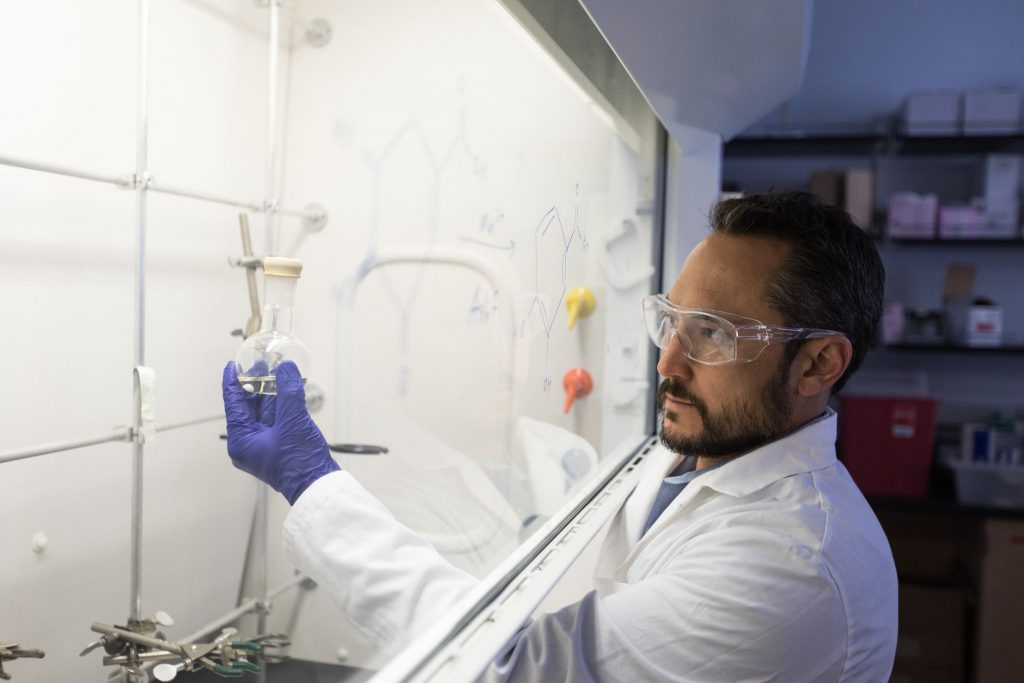NAU is part of a team of universities in the American West creating an NSF Innovation Corps (I-Corps) Hub designed to develop and promote a national ecosystem of innovation that supports companies and individual researchers who are developing technologies, products, processes and services that benefit the constantly changing global society.
The Desert and Pacific Region (DPR) Hub is comprised of the three sister institutions in Arizona (with ASU as the lead institution) along with Boise State, the University of California, San Diego, the University of Hawai’i, the University of Idaho and the University of Nevada, Las Vegas. It intentionally includes universities from five geographically and sociologically diverse states to strengthen regional connectedness and innovative capacity within and across partner states.
The primary purpose of the DPR Hub is to make available and accessible eight times the expertise, networking, experience and resources to innovators throughout the region. It is, essentially, cutting through the red tape and putting the resources that people need right in front of them. It’ll even help connect innovators with others doing similar work for possible partnerships. NSF’s goal with the I-Corps program is to support the commercialization of world-changing technologies that will increase global quality of life and security.
“We are thrilled to be a partner institution in this new I-Corps Hub,” said Jason Wilder, vice president for research at NAU. “NAU has seen many ground-breaking technologies come from our researchers, but a lack of resources to support entrepreneurial activities, particularly in start-up company education, has held back additional progress in developing this technology for larger use. The I-Corps Hub hits directly at that problem and will help our researchers take their work to the next level.”
Wilder is the primary investigator for NAU’s part of the grant, which is more than $900,000.
Associate VPR Andy Koppisch will serve as a faculty lead and technology transfer analyst Cristy Salanga will be senior personnel for the hub, which opens in January.
The specific goals of I-Corps Hubs are to:
- Create and implement tools, resources and training activities that enhance the nation’s innovation capacity.
- Identify, develop and support research that can generate economic value.
- Gather, analyze, evaluate and use the data and insights from those participating in local, regional and national I-Corps programs.
- Provide opportunities to diverse innovators.
- Share effective innovation practices nationally to impact economic growth and improve quality of life.
What that will look like for NAU researchers is a diverse network of mentors, including industry experts, who can help propel ideas forward and reduce the risks associated with new ventures; streamlined ways to share know-how, resources and connections; training in multiple formats; and a special focus in engaging researchers from historically underserved populations. NAU already has strong programs in cybersecurity, supply chain management, the study of infectious diseases, planetary sciences, bioengineering and climate and environmental science—all strengths shared by other DPR partners.
“I want to encourage our faculty and students to come together around an innovation to create an I-Corps team to learn how to take it to the next level,” Wilder said. “Supporting our students and helping them define themselves as future entrepreneurs is essential for creating the next generation of innovators.”
NAU will release more information in the near future about how to get involved with the I-Corps Hub.
Photo: Rob Kellar, an associate professor of practice in the Department of Biological Sciences and the Center for Bioengineering Innovation and founder and president of Development Engineering Sciences LLC., researches biomaterials, biocompatibility, cell and tissue culture, stem cell biology and wound healing. Credit: Northern Arizona University



